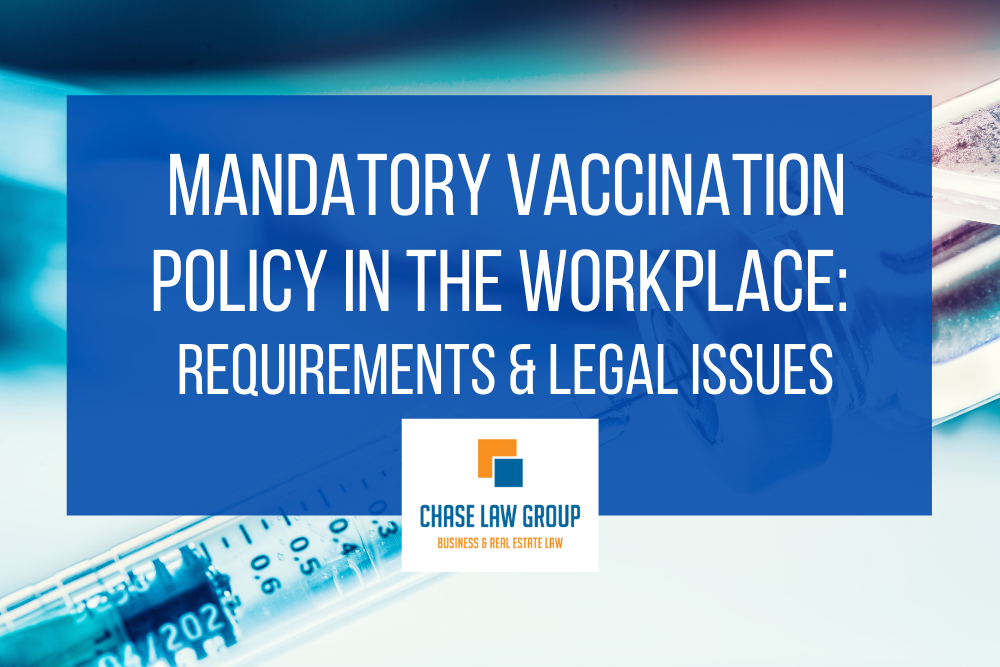Enacting and Enforcing a Mandatory Vaccination Policy in the Workplace: Understand the Legal Requirements and Issues That Can Arise
By Admin August 11, 2021 Category: Business Law Tags: business law california employment law california law chase law group chase law manhattan beach covid-19 vaccination employment law los angeles business attorney mandatory vaccination trial attorney workplace requirements

In the face of the recent upswing of Covid-19 cases related to the Delta variant, many employers have elected to require all of their workers be vaccinated. But what is an employer to do if an employee refuses to be vaccinated? As a preliminary matter, the California Department of Fair Employment and Housing (“DFEH”) has issued an opinion that California employers may mandate Covid-19 vaccinations for its employees. However, the employer must engage in an interactive dialogue with employees who have a disability-related or religious reason for refusing an FDA-approved vaccine. Note however, an employee who doesn’t “trust that the vaccine is safe” or prefers not to be vaccinated doesn’t have to be accommodated. Additionally, employers may “enforce reasonable disciplinary policies and practices” when employees resist the mandate but aren’t entitled to an accommodation, so long as the employer doesn’t take adverse employment action against an employee for engaging in legally protected activity—such as complaining that the policy is discriminatory.
The DFEH provides examples of reasonable accommodation options employers may consider, including but not limited to, working from home, job reassignment, or modification of worksite safeguards that enable the employee to work without endangering the employee or others. However, an employer is not required to provide an accommodation that risks the safety of other employees. The DFEH states that if you can show the accommodation imposes an undue hardship, the employee is unable to perform their essential job duties with reasonable accommodations, or the employee cannot perform those duties in a manner that would not endanger the employee’s health or safety of others with reasonable accommodations, you may exclude them from the workplace. It is important to note that the undue hardship standard applicable to requests for a disability-based accommodation is a very high standard to meet. Therefore, before responding to a request for accommodation you should consult with an experienced employment attorney. Contact Scott Liner at Chase Law Group for any questions or need for consultation [email protected] or call 310.545.7700.

